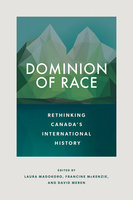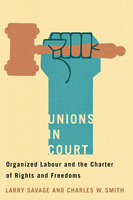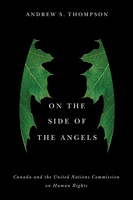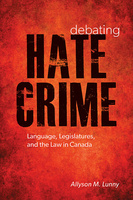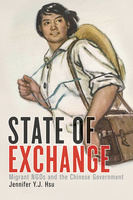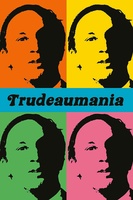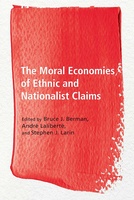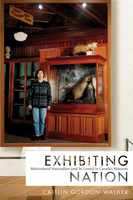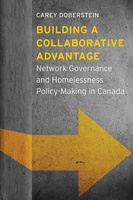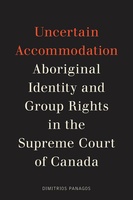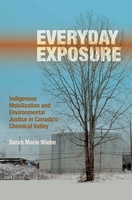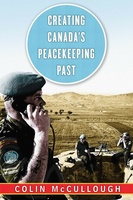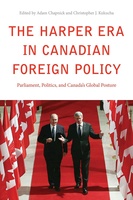Permanent Campaigning in Canada
This book provides a provocative look at the growth of non-stop election campaigning in Canada and its implications for Canadian democracy and how we are governed.
Caring for Children
Social Movements and Public Policy in Canada
Caring for Children interrogates Canadian public policies on the care of children, asking why the burden of care falls so heavily on women as mothers and caregivers, and what social movements are doing to try to redesign the politics of caring for children.
Prime Ministerial Power in Canada
Its Origins under Macdonald, Laurier, and Borden
Using innovative methods, this book shows how prime ministerial power was centralized from the very beginning of Confederation by Macdonald, Laurier, and Borden.
Dominion of Race
Rethinking Canada’s International History
Challenging well-entrenched ideas and mythologies, this book shows how race has informed Canada’s international history and is woven into the fabric of understandings of Canada in the world.
Unions in Court
Organized Labour and the Charter of Rights and Freedoms
This book demonstrates how and why labour’s long-standing distrust of the legal system has given way to a Charter-based legal strategy designed to protect workers’ rights and freedoms.
On the Side of the Angels
Canada and the United Nations Commission on Human Rights
Documenting six decades of Canadian engagement within the UN human rights system, this book offers insights into the complexity and nuance of Canadian diplomacy as well as the evolution of UN’s universal human rights project.
Debating Hate Crime
Language, Legislatures, and the Law in Canada
Delving into the language used by parliamentarians, senators, and committee witnesses to debate Canada’s hate laws, this book analyzes passionate discourse surrounding victimization, rightful citizenship, social threat, and moral erosion.
State of Exchange
Migrant NGOs and the Chinese Government
This exploration of the interactive relationship between Chinese NGOs and the Chinese state provides fresh insights into how the Chinese government operates and why it needs non-governmental organizations to survive.
Trudeaumania
This book examines the origins, dynamics, and enduring significance of Trudeaumania, which swept Canada’s political and cultural landscape in the late 1960s.
The Moral Economies of Ethnic and Nationalist Claims
Leading scholars investigate the complex role that competing moral economies play in ethnic and nationalist conflicts.
Mobilizing Metaphor
Art, Culture, and Disability Activism in Canada
Mobilizing Metaphor illustrates how radical and unconventional forms of activism, including art, are reshaping the vibrant tradition of disability activism in Canada, challenging perceptions of disability and the politics that surround it.
Exhibiting Nation
Multicultural Nationalism (and Its Limits) in Canada’s Museums
This exploration of museums as sites for representing and defining national identity encourages us to reconsider the idea of the multicultural nation.
Building a Collaborative Advantage
Network Governance and Homelessness Policy-Making in Canada
This comparison of three major Canadian cities over a twenty-year period draws on network governance theory to show that effective homelessness policy must be built on inclusive, collaborative decision making that includes policy makers and civil-society actors.
Engaging the Line
How the Great War Shaped the Canada–US Border
Engaging the Line explores how the First World War forever changed the Canada–US border by examining reactions to increasingly strict security measures in six adjacent border communities.
Uncertain Accommodation
Aboriginal Identity and Group Rights in the Supreme Court of Canada
A bold analysis of what happened when Canada attempted to extend group rights to Aboriginal people in the early 1980s and why it went wrong.
Everyday Exposure
Indigenous Mobilization and Environmental Justice in Canada’s Chemical Valley
Everyday Exposure documents the adverse health effects experienced by Aamjiwnaang citizens in the heart of Canada’s Chemical Valley and argues for a transformative and experiential “sensing policy” approach that takes the voices and experiences of Indigenous citizens seriously.
Creating Canada’s Peacekeeping Past
Creating Canada’s Peacekeeping Past delves into diverse representations of Canadian peacekeeping, including National Film Board documentaries, political rhetoric, and high school textbooks to show how peacekeeping became a symbol of Canadian national identity in both French and English Canada.
The Harper Era in Canadian Foreign Policy
Parliament, Politics, and Canada’s Global Posture
The first comprehensive analysis of Canadian foreign policy during the Harper era.
Health and Safety in Canadian Workplaces
Beyond Afghanistan
An International Security Agenda for Canada
For years, the war in Afghanistan dominated Canada’s foreign and defence policy. Now that the mission is over, what are the issues that will shape Canada’s future international security agenda?




